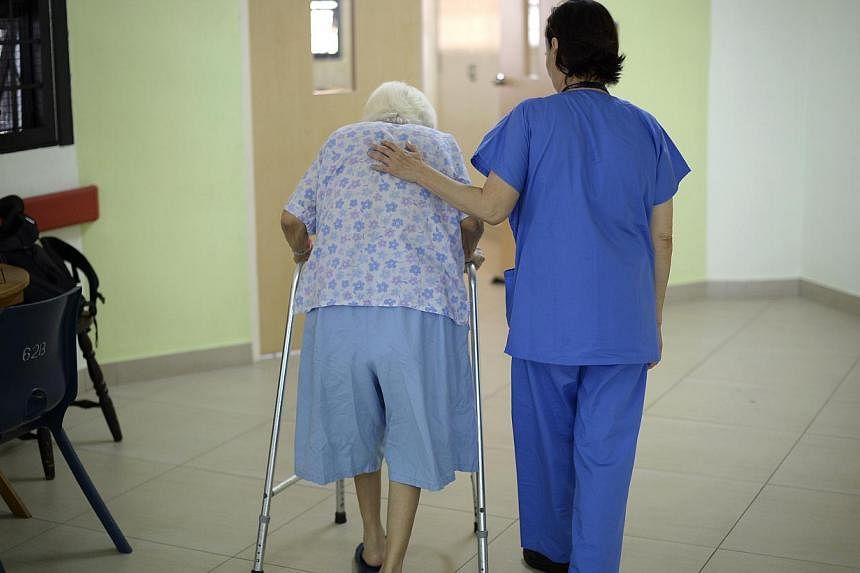Mid-career workers who want to make the switch to health care will be given more financial support from next year.
They will get a one-time bonus of either $1,500 or $2,000 after completing one of the health-care professional conversion programmes run by the Singapore Workforce Development Agency (WDA) and the Ministry of Health (MOH).
They will also receive a higher monthly allowance of between $1,300 and $1,900, which is about a 10 per cent to 20 per cent rise, during the two to three years they spend pursuing a health-related diploma or National Institute of Technical Education Certificate (Nitec).
These changes were announced by Dr Amy Khor, Senior Minister of State for Health and Manpower, yesterday.
"We are (continually) monitoring the competitiveness and attractiveness of the programmes because we want to encourage and enable professionals who are considering switching careers to the health-care sector," she said.
"With our ageing population and increasing incidence of chronic diseases, demand for health-care services will continue to rise."
From 2003 to last year, the number of beds in public and community hospitals as well as nursing homes has risen by more than 30 per cent. By 2020, another 11,000 beds will be added.
There are five programmes fully sponsored by MOH and WDA, which also has conversion programmes in other fields such as social work and childcare.
These five programmes are to help individuals make the mid- career transition to becoming a physiotherapist, occupational therapist, diagnostic radiographer, and registered or enrolled nurse.
They involve taking a full-time course at either Nanyang Polytechnic or the Institute of Technical Education, followed by a bond which lasts two to three years.
While the participants are completing their studies, they are given monthly allowances based on their prior work experience.
This sum was last raised in 2012, by 50 per cent to 70 per cent from the previous range of $750 to $1,000.
Since 2003, more than 900 professionals have made the mid-career switch to work in the health industry.
Close to 50 people signed up for the health-care programmes last year, with 40 joining this year so far.
Ms Siti Zawiyah Mohamad, who graduated from the health-care programme in 2009, is currently a senior staff nurse. She had previously worked as a media producer for seven years.
Said the 34-year-old: "To be brutally honest, the pay cut of at least 50 per cent was the main challenge for me back then. I think this extra $200 per month will definitely help the new participants.
"It is much better than the monthly allowance of $900 which I got before."
While the transition between jobs can be tough, former teacher Grace Yeap, who is in her early 40s and is now a diagnostic radiographer, said that the sacrifice is worth it.
"Savings were needed to tide me over when going back to school, but my family has been very supportive."
Mr Jacky Goh, 34, worked for around five years in real estate before moving on to physiotherapy.
He graduated from the health-care programme in March and his current salary is roughly $2,000 less than what he used to earn.
Said Mr Goh: "I became interested in physiotherapy after I injured my ankle around four years ago and had to go through it for about one month. I enjoy the interaction with patients and being able to see how they improve."

